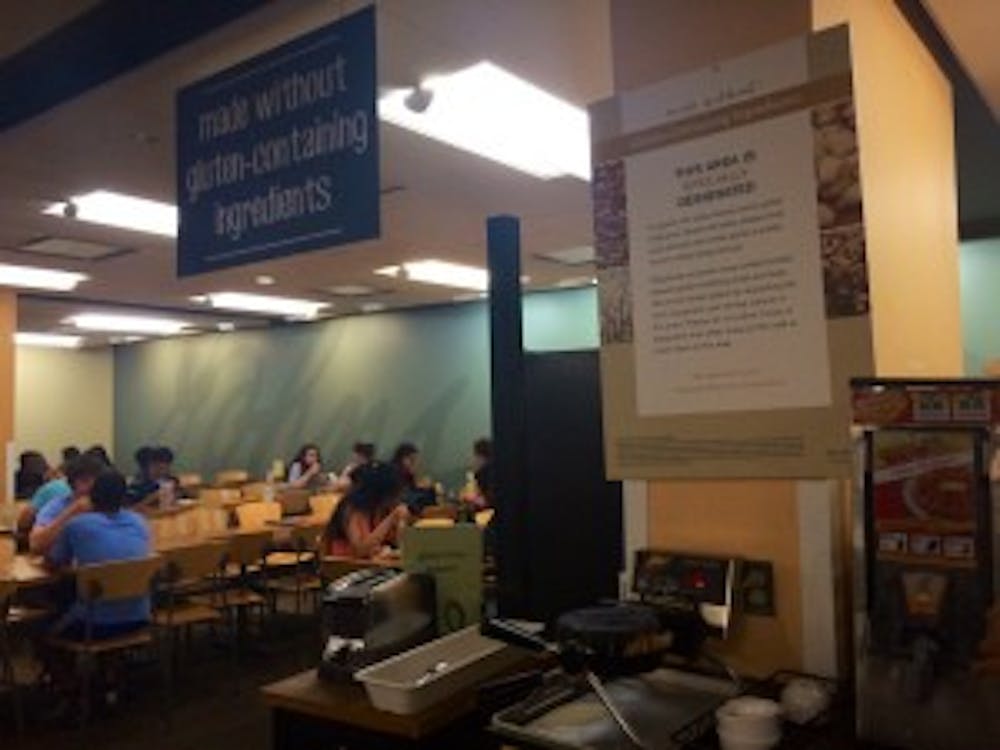
By now you’ve probably heard and seen the term “gluten-free” somewhere. You might see it on cereal boxes, bottles of soy sauce, even beer. You may have heard that it’s just some new trend. Maybe you know someone who doesn’t eat gluten. Maybe you don’t eat gluten. Whatever the case, I’d like to answer some common questions most people have when it comes to living a gluten-free lifestyle.
1. What is gluten?
Ah yes, the question on everyone’s mind. It’s actually pretty simple: Gluten consists of certain proteins that are found in grains such as wheat, barley and rye. That means it pops up in foods traditionally made with wheat flour. It can also be found in things like salad dressings, vanilla extract and more. This is because gluten is not found exclusively in grains like wheat so it sometimes turns up where it’s not expected. Remember: if something contains wheat, it definitely contains gluten, and if something is wheat free, it could still have gluten in it. Sometimes gluten is buried in one of those fancy terms you find in the ingredients lists on nutrition labels. This can make it extremely difficult to avoid.
2. So why avoid it?
Well, first and foremost, some people have celiac disease, which is an autoimmune illness that leads the body’s immune system to attack the digestive system when gluten is detected.
Symptoms of celiac disease can range from minor to life-threatening, and attacks can sometimes be triggered by the tiniest trace of gluten. It is a very serious condition, and the most effective treatment for it is to avoid ingesting any gluten at all.
Other people may have gluten intolerance, also sometimes referred to as a sensitivity to gluten. This is similar to other types of food intolerances, and it is necessary for gluten intolerant people to cut out gluten as much as possible as well.
3. But I thought it was just a trend...
It is true that in recent years people have been “going gluten-free” simply because they’ve heard that it’s healthier. While it’s not necessarily healthier to not eat gluten, if someone feels better without it in their life, who’s to judge? It’s possible they actually have a sensitivity or intolerance that they are unaware of.
There’s even an upside to having gluten-free become so trendy because more and more food brands and restaurants are offering gluten-free options to their customers, which does help out those of us who have to avoid it for medical reasons.
BUT (and this is a big but), there is a downside to the gluten-free diet becoming a fad. There are a lot of folks out there who do not take the gluten-free lifestyle seriously because to them it seems to be about unnecessarily avoiding certain foods simply because it’s what’s “in.” This way of thinking can be very harmful to people who absolutely need to keep gluten out of their lives. Family, friends and even servers in restaurants must understand that gluten can be dangerous to some people.
4. How can you eat gluten-free at Hopkins?
As you might imagine, things like going out to eat and going away to college can be difficult when dealing with dietary restrictions. In and around Johns Hopkins, although the situation is not always ideal, there are options available that suit a gluten-free lifestyle.
The FFC usually labels which dining options of the day are gluten-free. Some appliances there are also labeled GLUTEN-FREE ONLY, such as toasters or even a microwave. Do not use these for non-gluten-free items because you could make someone very ill.
There are also gluten-free foods offered at the Charles Street Market, and in many surrounding grocery stores now that more awareness is being brought to gluten-free living. The restaurant and bakery Sweet 27, located a few blocks from campus on 27th Street, is an entirely gluten-free facility that should be very safe for anyone with gluten-free needs.
5. ...So it’s really not just a trend?
Nope. But no matter what, why someone eats the way they do is their own business. At the end of the day, it’s important for us all to respect one another’s dietary restrictions, whether someone has them for medical, moral or religious reasons. What matters is that everyone is able to have a lifestyle that meets their own individual needs!





